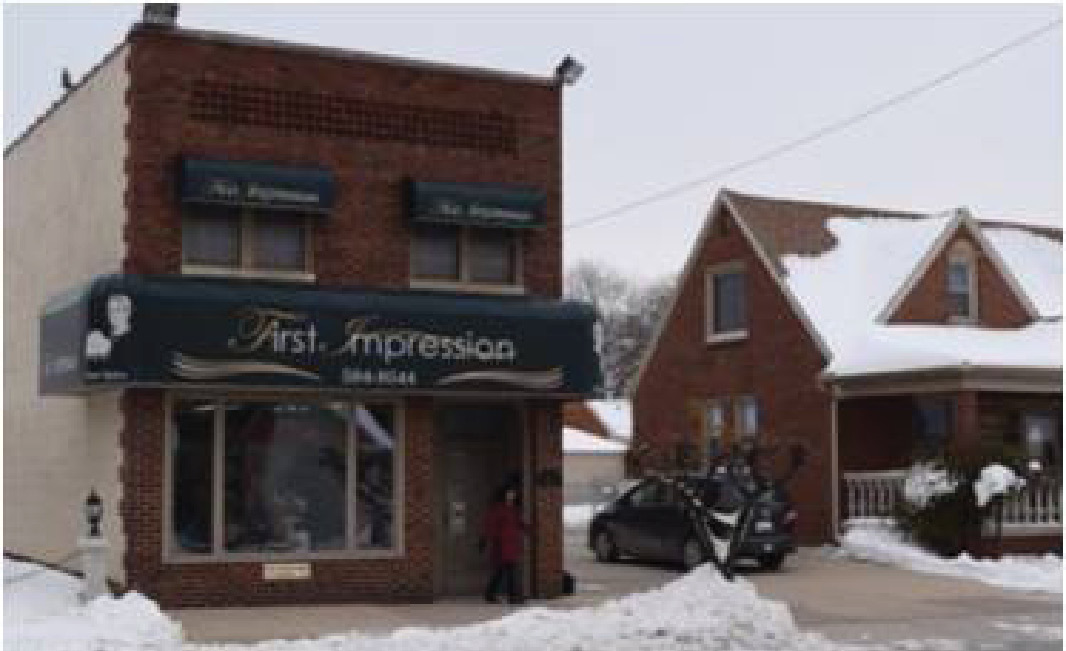By Georgia Coats
~He put a new song in my mouth, a hymn of praise to our God~ from the Zabur
Tallou Hababena and a New Hairdo
I sat robed in a black plastic cape, my wet hair combed over my face for precise styling. Sometimes a new hairdo from my long-time Lebanese stylist, Toufic, at First Impression Hair Salon, involves cake and tea with his lovely wife, or buying a box of Girl Scout cookies from one of his daughters. As he snips and trims with precision and care, Toufic always fills me in on the latest news of his family, his country and the unrest of the region. I also like to freshen up my rudimentary Arabic skills with him and learn a new phrase or two. But it was unusually quiet this Thursday morning without the standard news from the “Old Country” rattling on in the background. That set me up for the perfect moment to inquire about Tallou Hababena. Tallou Hababena was the new song my daughter had been fervently practicing with her low intermediate Arabic class at Star International Academy. They had to memorize the song and perform a traditional debke dance in preparation for the UN World Arabic Language Day, which is recognized globally and annually on December 18.
Inspiration to Research
A new song sums up graduate studies at Wayne State University. From the Zabur I am reminded that God is my strength and my song. This spiritual strength has carried me through the incredible combination of the increased academic challenges of fulltime graduate school and the physical weariness due to my current leukemia treatment. I have battled chronic leukemia (CML) for fifteen years, but my current treatment, Sprycel, is more toxic to my system and regularly challenges me with increased fatigue and dizziness. Being simultaneously on Sprycel and on a scholarship has pushed me to the edge of vulnerability and gratitude. I have been soaring to new heights and needing new strengths to do it. During my most difficult struggles I find hope through inspiring song lyrics. My source of inspiration has become my focus of research, new songs. Expression through song is powerful because it can be personal, social, spiritual, and cultural. A song can stir a heart, inspire a nation, or lull a child.
Contributing to the inspiration is the cultural and linguistic information contained within authentic music and lyrics. Song lyrics are a great resource for gaining cultural perspectives and memorizing new language forms. With my Spanish students, we print song lyrics and then research idioms, dialects, themes, styles, metaphors and verb tenses found in each new song. Through this wealth of cultural insight, my desire is to make life-long language learning meaningful and inspiring for myself, and for those that I teach and coach.
The Comprehension Quandary
So, as I sat at First Impression, my thoughts shifted from my studies to my daughter’s Arabic song. Tallou Hababena had become my new challenge. My daughter had come to me weeks before with the Arabic script and the notecards she was using to transcribe the lyrics into English. Even though she didn’t understand the words, she was trying to prepare her best for her class performance.
As a family we want to position ourselves to engage the language and culture in our community. I’m training to be a Language Learning Coach. I am researching music for language learning purposes. I got all fired up. There was no way my girl was going to sing a song she didn’t understand in celebration of language! We went into full-on meaning-making mode: My husband Steve acquired the translation of Tallou Hababena from a friend. We had watched various YouTube videos that helped us figure out that this song was about a songbird, nature, and the beautiful mountains of Lebanon. We knew that that title meant Come our Love. But something was missing. Why this song? How did it stir the hearts of its hearers?
Longing for Home

Toufic felt free to enlighten me. With scissors in one hand and a comb in the other, and my wet hair in my face, his face lit up at the mention of Tallou Hababena by the prominent Lebanese singer Wadih El-Safi. “Kids wake up whistling this song. It’s a song about home. When someone has been gone, far away, for too long, their loved ones back in the villages wait for them to come home…” As Toufic burst into spontaneous song, my mind wandered to my family and loved ones far away, and how I wished I could be with them, especially at Christmastime. Tallou Hababena was in essence a version of I’ll be home for Christmas…if only in my dreams… Only this song had a beat you could clap along with, which I did, under my plastic cape! Even though I couldn’t understand all of Toufic’s words, I understood the powerful longing for my home and family back in Colorado.
My husband Steve and I joked that before winter vacation most parents back in my hometown in Colorado were probably watching Christmas concerts, with their kids donned with jingle bells and red sweaters. But we beamed as our daughter and her 6th grade Arabic class walked onto the stage and began swaying their arms, stomping the debke, and singing along to Tallou Hababena (mostly) in unison. We were in full celebration of World Arabic Language Day, and Tallou Hababena would mark a new memory for us.
That’s the power of song. I have songs that mark some of my best memories, and some of the saddest ceremonies; songs of crying out to God Most High, songs that inspire, refresh, celebrate, and worship. God is my strength and my song. I want to praise God with words and with my life, in more than one language, and I want to help others do the same.












